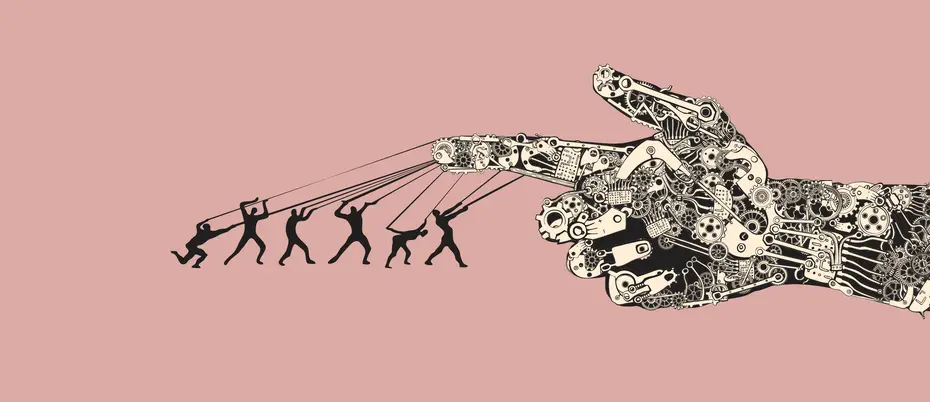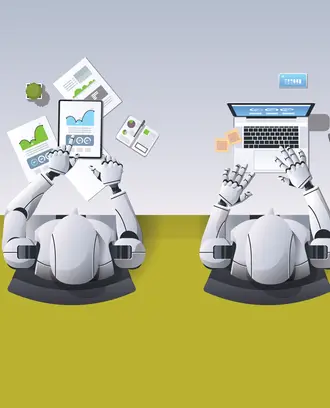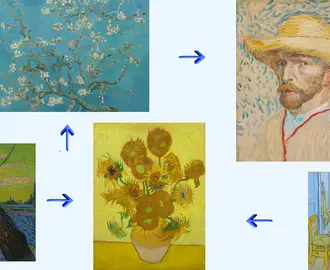Research
Are we encouraging the wrong AI?
The Industrial Revolution brought automation while still increasing demand for labor. There’s no guarantee artificial intelligence will do the same.
Without investment in the right type of artificial intelligence, the future of work isn’t looking good for humans, MIT Sloan economist Daron Acemoglu warns in a new working paper.
“It will not be the end of work anytime soon, but the trend towards lower labor share and anemic growth in labor demand will continue — with potentially disastrous consequences for income inequality and social cohesion,” write Acemoglu, author of “Why Nations Fail: Origins of Power, Poverty, and Prosperity,” and his co-author Pascual Restrepo of Boston University.
AI today is used for a variety of work including data processing, pattern recognition, and predictions. And the common thread among that work is automation.
The result, the two professors write, is “stagnating labor demand, declining labor share in national income, rising inequality, and lower productivity growth.”
And the economy isn’t helping to turn that tide. One reason, the authors write, is that the “social value” that comes with job creation [people with jobs contribute more to society and are happier] is ignored by the market. Another is that automated technologies are cheaper than the cost of human labor.
Then there are the values of big companies like Tesla, which emphasize automation for everything, Acemoglu and Restrepo write. These powerful firms create an environment where automation is rewarded and other technologies are ignored.
Even the U.S. government can do only so much. While it used to employ public-private partnerships to encourage innovation, the government has put less money toward that effort, and the private companies in Silicon Valley are growing increasingly more powerful when it comes to the direction of research, the authors write.
“Even though we currently lack definitive evidence that research and corporate resources today are being directed towards the ‘wrong’ kind of AI, the market for innovation gives no compelling reason to expect an efficient balance between different types of AI,” the authors write.
The right type of AI
But labor can and should benefit from advancements in technology, Acemoglu and Restrepo write.
Despite the automated work created by the Industrial Revolution of the 18th and 19th centuries, and the emergence of mechanized farming in the 19th and 20th centuries, productivity and wage growth have been relatively proportional for the past 200 years.
“Though mechanization reduced the labor share and employment in agriculture, overall labor demand rose because a range of new tasks were introduced in both manufacturing and services,” the authors write. “In fact, this period witnessed not only the rise of clerical occupations but a range of more specialized blue-collar and white-collar jobs that increased productivity, the demand for labor, and the labor share in manufacturing and services.”
Acemoglu and Restrepo propose a few sectors in which modern automation could be used to increase productivity and labor demand. They include:
- Education: Students don’t all learn the same way, but it's not practical for teachers to tailor each lesson for each of their students. AI software that collects and analyzes data could do it, and at the same time increase the need for teachers who can manage those individualized lessons.
- Health care: An AI application that collects and analyzes medical information can share that data with nurses and technicians to improve a patient’s diagnosis and treatment.
- Augmented reality: An interactive interface between humans and machines can help workers perform certain high-precision tasks normally reserved for robots. This will not only help some workers keep their jobs, but could create new roles.
“We shouldn’t assume that, left to its own devices, the right types of AI will be developed and implemented,” Acemoglu and Restrepo write. “The considerable promise of AI implies that we need to devote care and serious thought to its implications and to the question of how best to develop this promising technology platform — before it is too late.”




